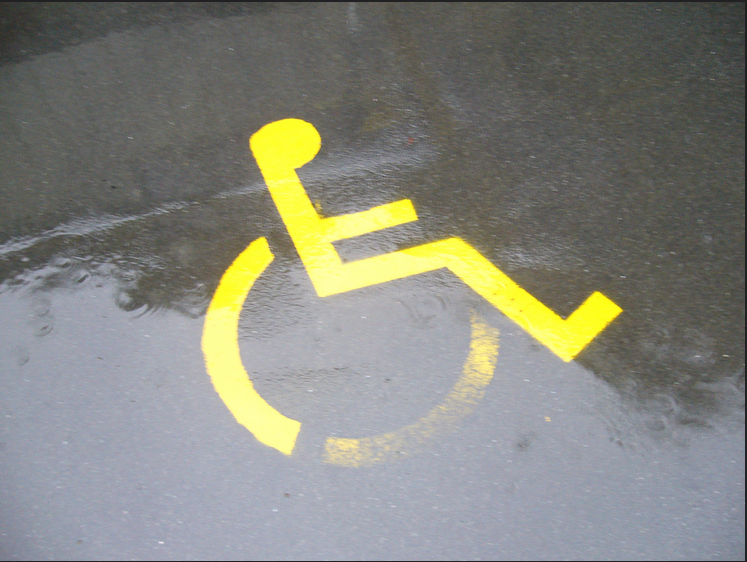The conference “Cities for accessibility, jobs and inclusion – breaking down barriers together”, which has been jointly organised by the city of Lisbon, the city of Berlin and EUROCITIES, will take place in Lisbon City Hall on 18-19 June 2015.
The conference aims to:
- Explore the role of accessibility in employment, social inclusion and active ageing.
- Discuss the economic impact of accessibility, considering on one hand costs of implementing it, and on the other its potential for job creation and social and labour market inclusion.
- Explore the range of roles city authorities can play in implementing accessibility measures, and why they are central to the successful implementation of instruments such as the UN Convention of the Rights of People with Disabilities and the upcoming European Accessibility Act.
- Bring together stakeholders from the EU, national, regional and local levels to discuss how to steer the accessibility agenda together.

“Disabled Access” by Bentley Smith used under Creative Commons 2.0/
Cllr Lisa Trickett, a cabinet member of the Birmingham City Council for Green, Smart and Sustainable City, has been invited to be a panellist on the second day of the conference on the ‘Moving forward! What Europe Needs?’ panel.
Cllr Trickett will also support the upcoming EUROCITIES position on accessibility, whose key points for its statement on the role of cities in accessibility agenda are the following:
- Many European cities are committed to become more accessible, to secure individual rights of people with disabilities and older people, and to improve quality of life for all residents and visitors alike (e.g. parents with strollers).
- Cities are on the frontline of making Europe more accessible.
- Due to this central role of cities, EUROCITIES ask for:
- Putting city administrations at the heart of European and national policy making when it comes to accessibility and disability agendas.
- Developing favourable funding frameworks and fiscal regimes for adapting existing infrastructure.
- More commitment from other levels of European governments to take decisive action towards promoting accessibility together.
- Making the existing city infrastructure more accessible may come with a cost, but lack of accessibility comes with significant social and economic costs born by individuals, families, cities and states, which should be taken into consideration in the total equation.
- To avoid future costs, accessibility needs to become part of EUROCITIES’ job. All new developments in the city should be based on ‘Design for All’* approach. Mainstream accessibility will ensure that future generations will be able to participate in social, economic and free time activities independently regardless of age, gender, abilities or cultural background.
For more information about the conference “Cities for accessibility, jobs and inclusion – breaking down barriers together” click here.
——————————————————————————
* ‘Design for All’: adapting all environments, including public spaces and buildings, housing stock, transport infrastructure and public services in such a way that they can be used independently and intuitively by everyone. This increases comfort, health and safety, functionality and affordability to everyone, whilst through being inherently accessible, secures independence and lifestyle choices of older people and people with disabilities. Such mainstreaming of accessibility means that in the future special solutions for people with disabilities will no longer be necessary.




